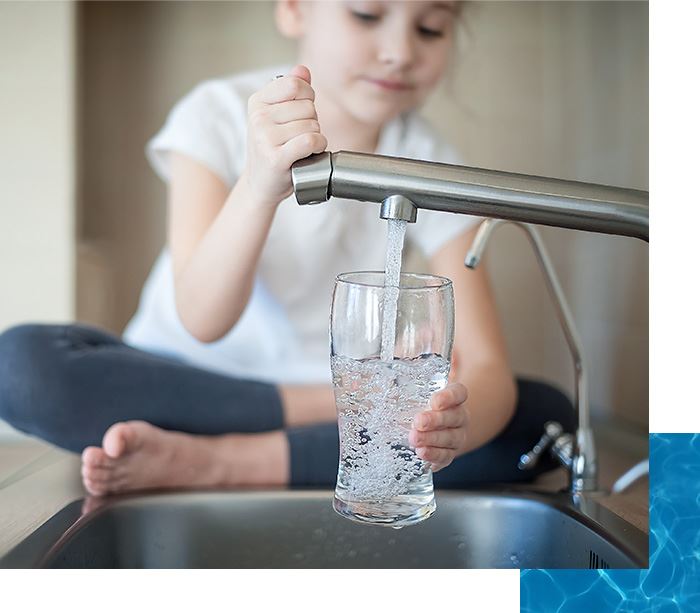
Contact Us Today!
Water Softeners in Oxnard, CA
Improve Your Water Quality with Top-Notch Water Softeners
Hard water is one of the most common water quality issues in the country. “Hard water” is the colloquial name to describe the condition of tap water containing elevated levels of mineral content, including calcium and magnesium. While not inherently harmful to you, these minerals can cause issues for your home, particularly in elevated quantities. Hard water can lead to limescale development, strange tastes, and even dry hair or skin.
Are you tired of dealing with hard water in your home? Pacific Water Conditioning has the solution for you! As a leading provider of water system services, we understand the critical role that water plays in your home or business operations. Our comprehensive water softening systems are designed to address the challenges posed by hard water, giving you better-quality water you can depend on.
Ready for cleaner water? Reach out to Pacific Water Conditioning at (805) 334-8873 for all your water system needs. Get the best quality water running through your home today!

When Do I Need to Replace My Water Softener?
Knowing when to replace your water softener depends on several factors, including its age, efficiency, and overall condition.
Some signs that may indicate it's time to consider replacing your water softener include:
- Age of the system: Most water softeners have a lifespan of around 10 to 15 years.
- Increased water hardness: If you find that the water hardness levels are consistently high, even after adjusting the settings on your water softener, it might indicate that the system is not functioning properly and may need replacement.
- Frequent repairs: If you find yourself frequently calling for repairs or if the cost of repairs is becoming prohibitive, it may be more cost-effective in the long run to invest in a new water softener.
- Visible signs of wear: Inspect your water softener for visible signs of wear, such as rust, corrosion, or leaks. These issues may indicate that the system is reaching the end of its usable life.
- Changing water needs: If your household water needs have changed, your existing water softener might be undersized. In such cases, upgrading to a larger system or one with a higher capacity may be necessary.
Pacific Water Conditioning can assess the condition of your current system, provide guidance on whether replacement is necessary, and recommend a suitable replacement based on your specific water-softening needs.

Why Choose Pacific Water Conditioning?
-
High Quality Products
-
60+ Years of Experience
-
Locally Owned & Operated
-
Customer Care Focused
Softener Tank Delivery Service
Softener tanks are a popular way of improving water quality without the massive investment in a whole-home water softening system that can require maintenance and refreshing on your own. Instead, our team installs a simple apparatus on your main water line (usually in your garage) and then periodically replaces your softener tank for you. No more worrying about refreshing your tank on your own or the challenge of ongoing maintenance. We’ll take care of the hard work, including hauling away your old softener tank every month!
Talk to our team today to learn more about this service and get a personalized quote. We proudly serve Oxnard and the surrounding areas, ensuring all our customers enjoy clean, softened water. Whether you're in Ventura, Camarillo, or Port Hueneme, we’re committed to providing top-quality water solutions that meet your needs and improve your home’s water quality. Let us help you say goodbye to hard water and experience the benefits of softer, cleaner water throughout your property!
Have clean water running through your home today! Reach out to Pacific Water Conditioning today at (805) 334-8873 for all your water system needs.
FAQs about Water Softeners in Oxnard, CA
What do water softeners do?
Water softeners remove minerals like calcium and magnesium from hard water, preventing limescale buildup and improving the quality of water for your home or business.
What type of water softener is best?
The best type of water softener depends on your home’s water usage and hardness level. Common types include salt-based, salt-free, and dual-tank systems. Pacific Water Conditioning can help you choose the right system for your needs.
What do you mean by water softening?
Water softening is the process of reducing the mineral content in water, specifically calcium and magnesium, to make it "softer" and less likely to cause scaling, stains, or skin dryness.
How does hard water affect homes in Oxnard, CA?
Hard water in Oxnard can lead to mineral buildup on pipes, fixtures, and appliances, reducing their lifespan and efficiency. It can also result in dry skin, hair, and soap scum buildup.
Can water softeners help with water taste in Oxnard, CA?
Yes, water softeners can improve the taste of your tap water by removing minerals that contribute to undesirable flavors, giving you cleaner, fresher-tasting water.
How often should I replace my water softener?
The lifespan of a water softener typically ranges from 10 to 15 years. If you notice persistent water hardness or increased maintenance needs, it may be time to replace your system.